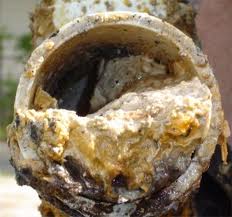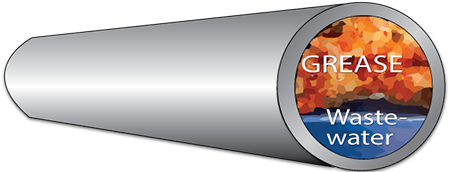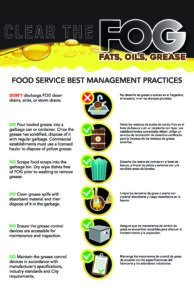Fats, Oils and Greases


In the kitchen, many things are washed down the drain or flushed down the toilet that would be better disposed of in other ways. Fats, oils, and greases (commonly referred to as FOG) are good examples of wastes that are often washed down the drain during dishwashing or preparing food, accumulate, and cause clogs in the plumbing and the local sewers.
Home Kitchens
How can you prevent clogs?
- Do NOT pour grease, cooking oil, or fat trimmings down the drain or into the garbage disposal
- Scrape food scraps off dishes BEFORE placing them into the diswasher or sink
- Never put coffee grounds, eggshells or kitty litter down the drain or toilet
- Wipe greasy dishes, fryers, griddles, and pans with a paper towel BEFORE washing. Place greasy towels in the trash.
- Pour FOG into an unwated covered container like an old glass jar or coffee can and place into the regular trash
- Consider recycling FOG at Clark County Specialty Recycling
- For more info Click Here
Commercial Kitchens
Wastewater from food preparation, dishwashing, and floor washing are considered processed wastewaters and are subject to Ohio EPA regulations:

How can you prevent clogs and expenses associated with plumbing repairs and sewer cleanouts?
- Do not pour grease, cooking oil, or fat trimmings down the drain or into the garbage disposal.
- Scrape food scraps off dishes BEFORE placing them into the dishwasher or 3-compartment sink.
- Maintain your grease trap, if your kitchen is required to have one.
- Keep your maintenance log
- Clean your grease trap regularly.
- Hire a licensed plumber to clean your grease trap
- Maintain your oil/grease interceptor, if your business is required to have one.
- Consider collecting and selling your waste FOG.

